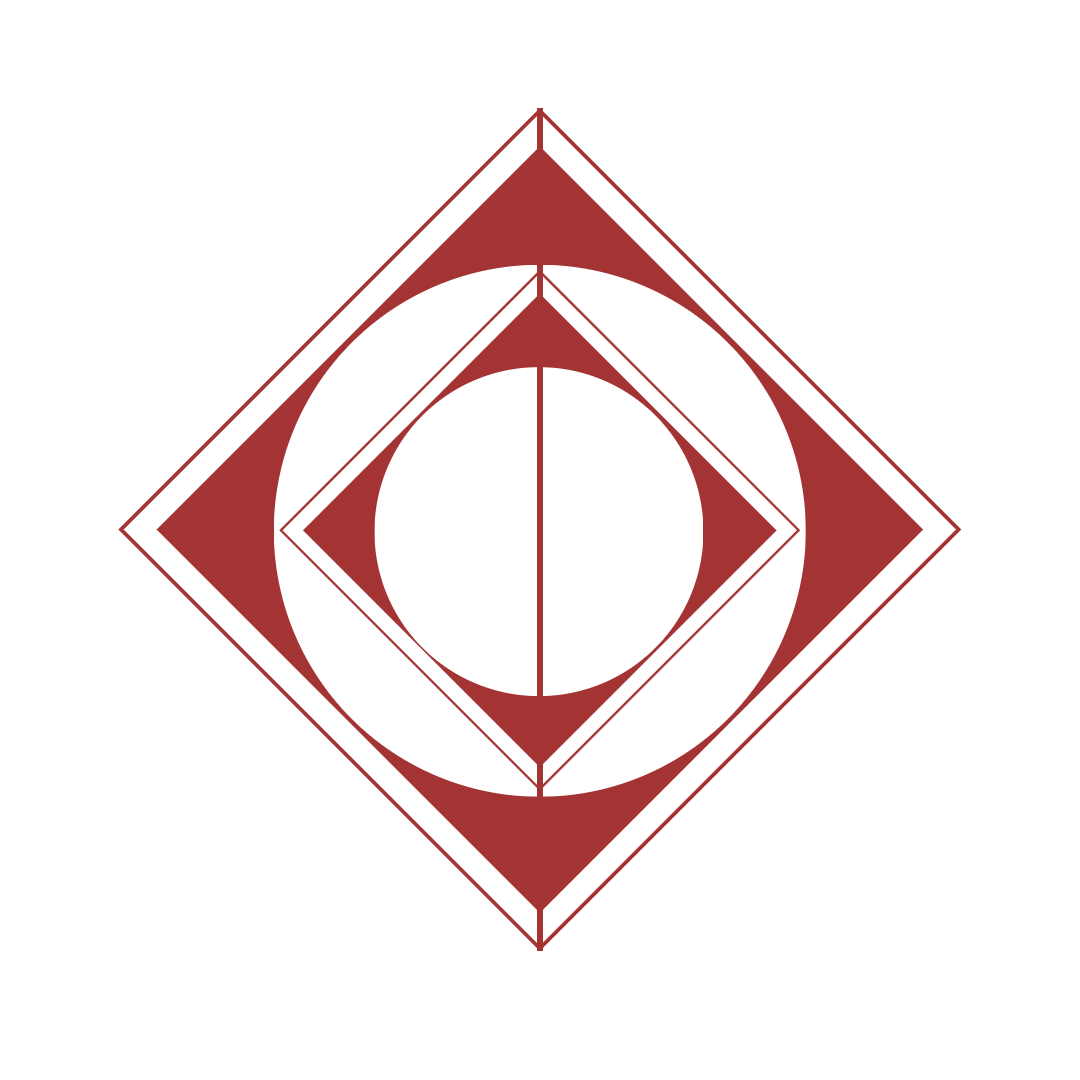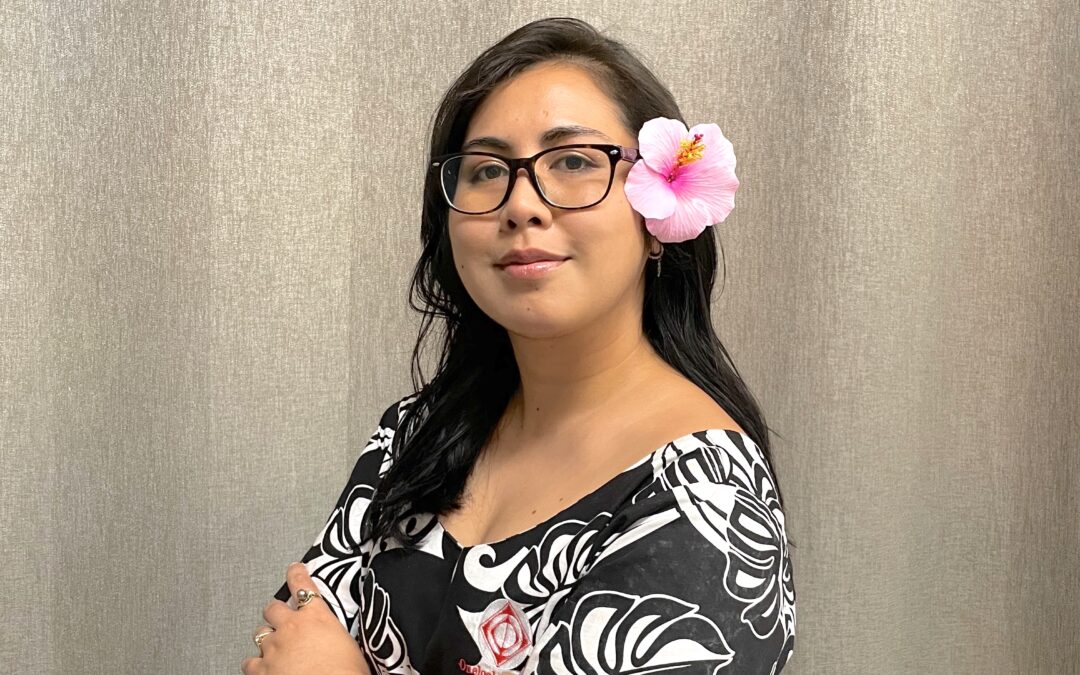It’s no small thing to say that being a business in this day and age is a huge effort. Business owners, and local founders understand how difficult it is to keep your business going in the little island. Between high import costs, inflation and the shadow of the Pandemic, the country’s commercial and independent sectors have been battered.
But if you’ve been raised on a small island developing state (SIDS) like Samoa, you would also know that business seem to crop up and disappear after a year or two, even before the pandemic.
It’s difficult to maintain a business on the island. This comes down to a variety of factors. For some its arithmetic. Sometimes, it just doesn’t work out through a combination of bad timing, numbers and unfortunate decisions. Other times its a pandemic that locks down a country’s economy. And other times, well the business just doesn’t pan out and it’s time to try something else.
Whatever the reason, and there are many, businesses have it rough. The industry is a big one and there’s a lot of players on the board. But for this blog, we wanted to ask one player about her experience. She won’t be the last business owner we aim to feature, but we figured if we were going to talk about businesses surviving why not ask our own Cofounder and Business Development Manager, Olisana Mariner-Hughes.
Table of Contents
“One Look Is All It Takes”
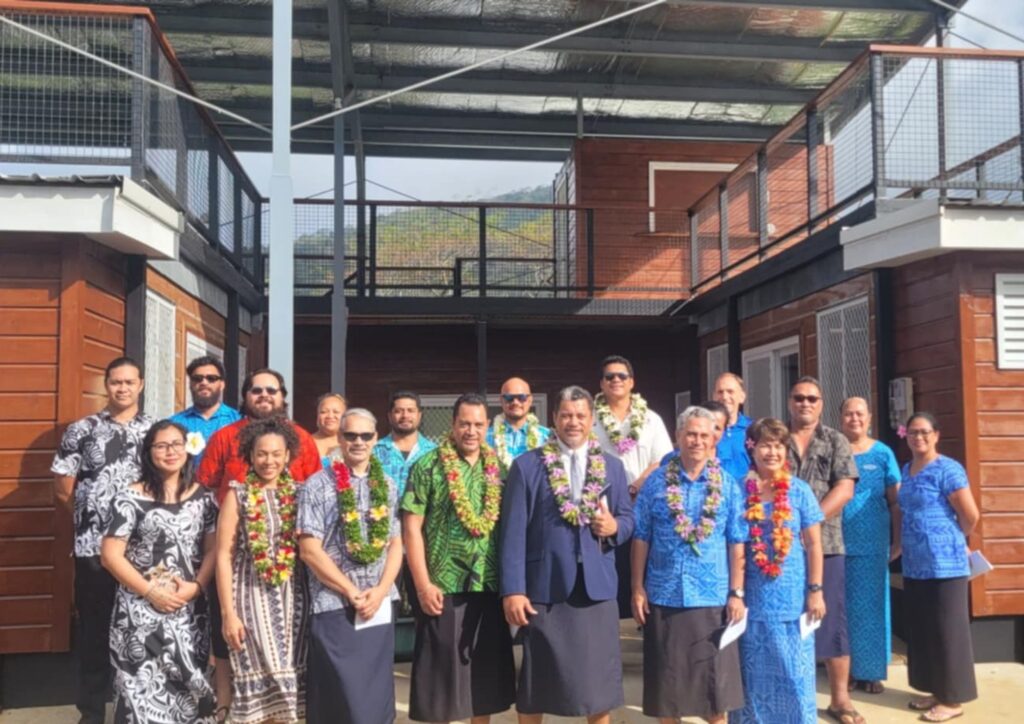
As per usual in these blogs we like to give a little foundation to the topic. Onelook Studio exists as the brain child of Olisana Mariner-Hughes and her sister/co-founder Ma’atautogia Okalani Mariner. Onelook Studio has evolved over the years. Originally registered as a business in 2009 and trading as ‘Onelook Communications’, the firm specialised in multimedia and tradiktional advertising and marketing services.
The company was run by Shorley Mariner which specialised in traditional marketing and advertising, and event management company to a design and paper goods store, recently becoming Samoa’s First Coworking Space and Creative Studio.
By interviewing Mrs. Mariner-Hughes, we hope to gain insight into how she’s navigated the many trials that have come her way, as a young woman starting a business in Samoa – the difficulties she’s had to face and how she’s managed to persevere through it all. We hope not only to provide the story for this studio from a personal perspective but also advice for those starting out as entrepreneurs.
Business, Struggle and Care
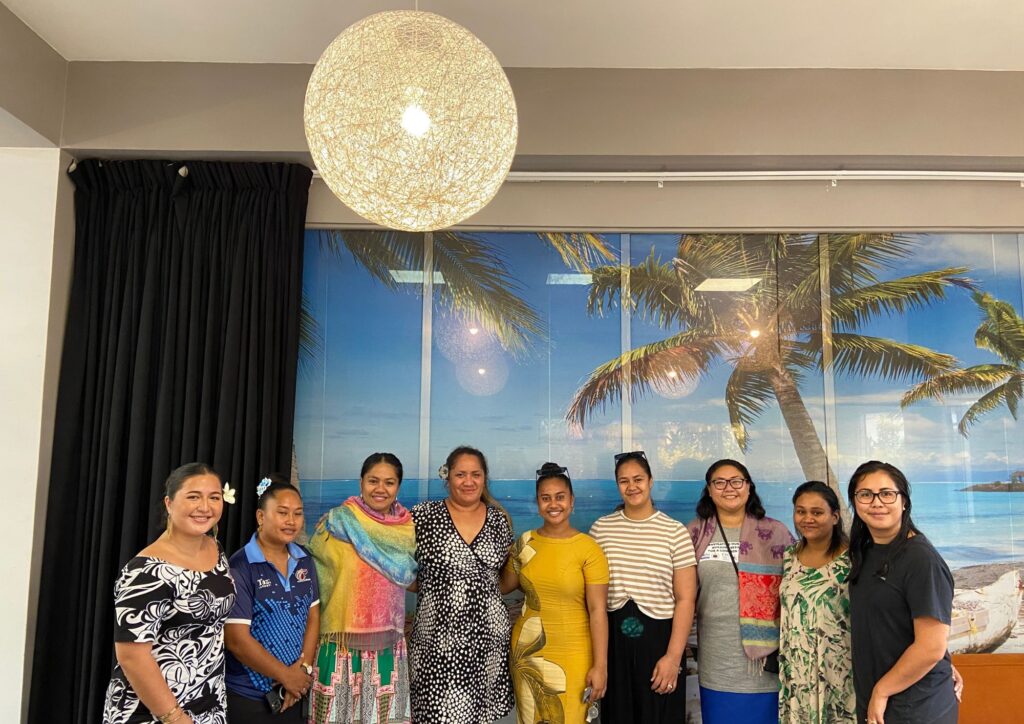
“Good afternoon Mrs. Olisana, I hope you’re doing well today. Before we start with our discussion however, I wanted you to tell us a little bit about yourself.“
“Thanks for this opportunity, my name is Olisana Mariner-Hughes. I am the owner of Onelook Studio, and I cofounded it with my sister, Ma’atautogia Okalani Mariner, in 2022. But, previously, it was trading under the name Hub Pacific, which I pitched in 2018 and then formally registered as a business in Samoa in 2019.”
“So your business has been active since 2019?”
“Yes.”
“And why did you change the name to One Look Studio?”
“So we changed, the name to One Look Studio as part of a merger. Previously, within our parent company, there were 3 different departments or business activities. There was the Hub Pacific, which was focused on digital literacy, creative entrepreneurship, and events management. There was Onelook Communications, a social and community safeguards consultancy, and then of course the original business activity for the Parent Company, which is OSM Consultants – a civil and structural engineering consultancy – which was founded by Vui Sebastian and Shorley Mariner, who are my parents.”
“Did you have any plans to grow your business even further?”
“I think the goal of every entrepreneur if you’re starting a business is longevity. Gary Vaynerchuck, who was one of my early entrepreneurial influences has two particular pathways or philosophies that define why people start business.”
“The first is to build a business and then sell it, meaning you build a really successful business model so that in the future, when it is making a lot of money and profitable, you can sell it to another person or organisation.”
“The second is a legacy-based model. You often find this model here in Samoa when you look at privately owned companies that are owned and run by families. In this business model, longevity and sustainability are dependent upon stakeholders within the family, and sometimes even in-laws who marry in and close colleagues or friends that you make along the way.”
“In my own journey, I would definitely say Onelook Studio leans more towards the latter model, in that this build and journey has always been about legacy.”
“It cannot be understated that starting a business and sustaining a business are two different things. Nonetheless, they are in equal parts a privilege.”
“Entrepreneurship (let alone Youth Entrepreneurship), is not something for the faint of heart. It can get prettly lonely at times, and there are a lot of financial, legal and psychological barriers that often prevent young people from confidently starting businesses of their own.”
“My pathway towards entrepreneurship was enabled and accelerated at a young age because I saw it modelled not only by parents but also by my grandparents. In my own family, I am fortunate, and I acknowledge what a priviledge it is to have uncles and aunties who have pursued higher education and started businesses of their own.”
“I don’t like using the word but it almost felt like I was ‘groomed’ into entrepreneurship. Especially when the conversations I was hearing and the people that I’ve been surrounded by, have been entrepreneurs or freelancers.
“I’ve been inspired by my loved ones and their business journeys, so part of my desire for legacy is to carry on what has previously been set as foundations by my elders and all the people who have come before me.
“Long story short, yes. It has always been my goal to be a ‘steward of a business’. Business owner is the easiest way to communicate what I do, but in terms of operations and strategy I feel that ownership is a very colonial or capitalist mindset, so I like to think of myself as a steward of a business.”
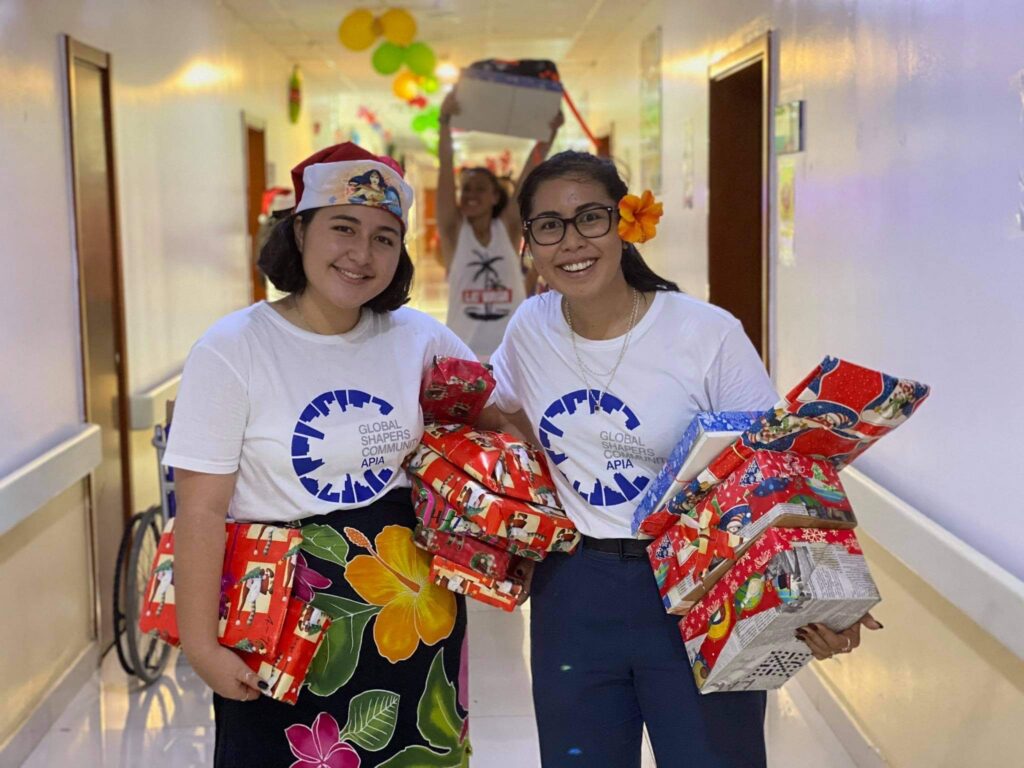
“So I think you’d agree that what a business needs is your full-time commitment?”
“Certainly. If you are going to start a business, specifically a formal enterprise because there are a lot of micro, small, and medium enterprises in Samoa who have more flexible hours and commitments. You will find that a lot of these MSMEs make up the informal business sector here in Samoa.”
“The informal sector looks like mom-and-pop shops, flea market stalls, and village pop-ups selling fresh produce – these businesses don’t need an official business license to trade but they make up a majority of the private sector in our [Samoan] economy. In fact, MSMEs are actually the backbone of a lot of Pacific Island economies.”
“But I digress; if you are considering going the formal route and officially registering your business with the Ministry of Commerce Industry and Labour, there are many benefits to it.”
“Not only from tax and compliance perspective and being [viewed as] more #LEGIT but actually growing your business and accessing travel and funding opportunities locally and internationally. Coupled with the right tenacity; pursuing a formal business license can give you keys to doors that previously would not have been open for you.
“Considering the starting date of Onelook Studio, the 2020 Pandemic must’ve been a terrible shakeup for you guys.”
“Yeah. Being a young entrepreneur at the time, the pandemic pumped the brakes on a lot of my professional goals and business dreams. It was also a time that both my personal and professional life was shaken up drastically.
“For the first two to three weeks we were in full lockdown mode and self isolation. This was after the government mandated State Of Emergency (SOE) orders. There was no business for a three-month period.
“For me, that was a time of real reckoning because I had to look at all the revenue streams in my business and realistically ask myself the question, ‘Is my business model sustainable? And if this SOE should be extended or should another emergency happen again, would the company I built be able to stay afloat?’ “
“And that’s exactly what happened.”
“The lockdown was extended and I made the decision to branch into consulting services and virtual assistance (VA) services because this was the type of work that did not require people to physically meet in-person or work from an office location. I also saw the success of many VAs in Southeast Asia and Australia, which bode well for our region.
“As a young entrepreneur, I saw that there was much that I could offer from an administrative, secretarial, and virtual assistance point of view, even on a remote island such as Samoa.”
“When I revised the business model, it was extremely hard at first but as we got the right systems and processes in place, we had many clients contact us to assist with their business and organisation needs. These were clients from New Zealand and Australia that were eager for administrtive, marketing, creative and IT support.
“They were so glad to have a VA based in Samoa and in the islands because our lived experiences as a Samoan and as a Pacific Islander living *IN* the islands. This lived experience informs many of the solutions and services for our clients.
“On the more personal side of things, my mental health took a turn for the worse, so health became a really important priority for me. Not only for Olisana the person but I I had a lot going on within my family, too. Such as my dad getting really sick and my grandparents passing away.
“With self isolation happening, I had to address a lot of the things that I had previously swept under the rug, in terms of my own health care and the care of others. And so in a way I really appreciated the pandemic, because it was a reckoning, and it did help me to, like, say ‘GIRL BFFR’ – You can’t live like this.”
“Would you consider this a trial by fire?”
“It wasn’t really a trial by fire.”
“It felt like a forced handbrake in a car. Everything in my life had been moving extremely fast up until that point [when the pandemic hit]. Since the emergency breaks had been triggered, I had to now reckon with where I was at in my personal and professional life. “
“For me, the pandemic wasn’t necessarily a trial by fire because we still got business through hybrid events. It was more so that my focus on community, people and relationships became laser-focused. More specifically building trust in my brand reputation as a service provider.”
“In the years before 2020, I pushed myself outside of my comfort zone to pitch my business and network with strangers. It was intimidating at first but thanks to that period of stretching and growth, I was able to travel abroad and pitch my social enterprise, network with other movers and shapers around the world, and grow as a young entrepreneur. The countries that I visited during this period include Vietnam, Switzerland, New Zealand and Australia.”
“Reflecting on this journey, I have to give a shout-out to the friends that I made along the way. Especially during my Youth Co:Lab and Global Shapers journey. These connections were thanks to the Samoa Chamber and the International Centre for Democratic Partnerships. Through them, I was able to connect to Samoan entrepreneurs in the diaspora, and leaders from around the globe. These connections opened my eyes to innovations and opportunities for cross-border collaboration. New industry partners and business mentors also pushed me to be more tenacious about my business goals, even though it felt uncomfortable stretching outside my comfort zone.”
“The connection to people and community helped me not to be laser-focused on what was going on locally [with the pandemic] and not to get bogged down or discouraged. I was more intentional about what it means to build a sustainable business model and be future-oriented. I realised that the people who were supporting my business during the hard times were divine appointments and since I had taken time off in the two years before to invest and sow into good relationships, [the pandemic] was a season to harvest on those connections.
“For example, when COVID happened, our longtime partner, ICDP, reached out to talk to us about being the Samoa Hub Coordinator for their Pacific-wide network. During the pandemic, ICDP could no longer host in-person events due to the quarantine and lockdown requirements for different Pacific Island Countries. They needed someone in-country to help with running their program and achieving set outcomes. When they listed all the responsibilities involved with being a Hub Coordinator, it was a perfect match.
“Fortunately my business was selected to support their programs, events and activities in Samoa. We were called The Hub Pacific at the time, and we helped ICDP to run, virtual and later on hybrid events which became our niche in Samoa.
“At the time, it was very novel. I remember in 2019 trying to pitch a coworking space or pitch hybrid events and virtual events to government reps, academics and freelancers. To give context, Skype was the premiere app to use before the pandemic hit. When countries started closing their borders, an explosion of new video conferencing apps and tools like Zoom, Google Meets, Cisco, Jitsi, Blue Jeans and so many more hit the market. It was hard for some people like elderly working professionals and students to quickly adapt to the digital and rapidly interconnected world. This is where The Hub Pacific came in.”
“In those pre-COVID-19 days, I remember that it felt like pushing a boulder up a hill when I was pitching ‘The Hub’ as a social enterprise.”
“This is because it wasn’t just pitching the idea, it was also a new business model. In the pitch, I was also educating customers on how online meetings, online training and webinars were the future. Before 2019, it was easier to invite people into the space and show them the different ways in which the software, hardware and our hybrid event management services could assist clients in the burgeoning digital era. Now, I can just say we are a hybrid event management company and 9 out of 10 people will immediately understand what it is we do.”
“Well, we both know the Pandemic was a massive obstacle to everyone, locally and overseas. What are the other challenges aside from the pandemic that you might have faced during the time that your business has been active? As we both know, Samoa is a difficult place to start a business.”
“I think it’s really interesting you brought up that because there has been research that uncovered how a majority of new businesses fail after 2 years. Those statistics include businesses in Samoa.”
“I’ll always remember the Commerce Teacher that I had in high school called Mr. Taefu. He emphasised how important it was for us to be different and be original when coming up with a business idea. His frustration, I guess, being a business owner and accountant himself was looking at what other people in Samoa were doing. There is a pervasive copycat culture when people see that a business is doing very well and the point he wanted to communicate in class was the marketing concept of ‘Unique Value Proposition’ – what is your secret sauce? what is something hard to duplicate about your business that makes it resistant to copycat culture? – I think of these questions often.”
“It’s often said that ‘imitation is the highest form of flattery’ which means seeing copycats ain’t always a bad thing in Samoa. However, if what you offer can be easily duplicated by someone else, then you don’t have a business model that’s resistant to competition. The example that Mr. Taefu often gives is a mom and pop store in the village that manages to do very well for themselves. Another neighbouring family sees how successful they are and then decides they are going to start a family store themselves. The problem is that each store is only 100 or 200 meters apart which means the customer base is the same and they will be competing on price or product differentiation. This can only be sustained for so long before the store eventually has to close down because price competition is only good to use as a short-term strategy, not a long-term one.”
“I remember Mr. Taefu often said, ‘If you’re going to be a business owner, take time to do market research and see if this is something that people want. Take time to make your offer unique, so that you are not selling the same products or services as someone else. It’s always good to design a business plan that’s resistant to copycat culture’. This advice stuck with me for a long time.”
“If you’re going to open up, for example, just a mom-and-pop shop that’s only 200 meters from the next mom-and-pop shop who are selling the exact same products, then the only thing that you will have different is price. If you’re constantly competing on price, you’re not going to survive because those are short-term gains rather than long-term gains.
“In Samoa, the mom-and-pop shops that are still doing well to this day are the ones that have built relationships and use non-price marketing and sales, such as bringing in diverse products from the United States especially if most shops in the area only offer goods from New Zealand and Australia; offering a selection of freshly baked goods; and spending time training their team to give great customer service.”
“Also, I’m using product examples here, but as a service-based business owner, the same principles apply. What would make your accounting services better than the competitor offering 50% less than your cheapest package? How is your booking system? How easy is it to find your office premises?
“Our vision at Onelook Studio is to be leaders in the service industry, who are committed to excellence and trusted relationships. I like to remind myself about that every day and really dissect each word. It is important for accountability that I check myself to see if I’m walking the talk and living by the same vision, mission, values, and code of conduct. This is what I expect of them and, of course, what they expect from me.”
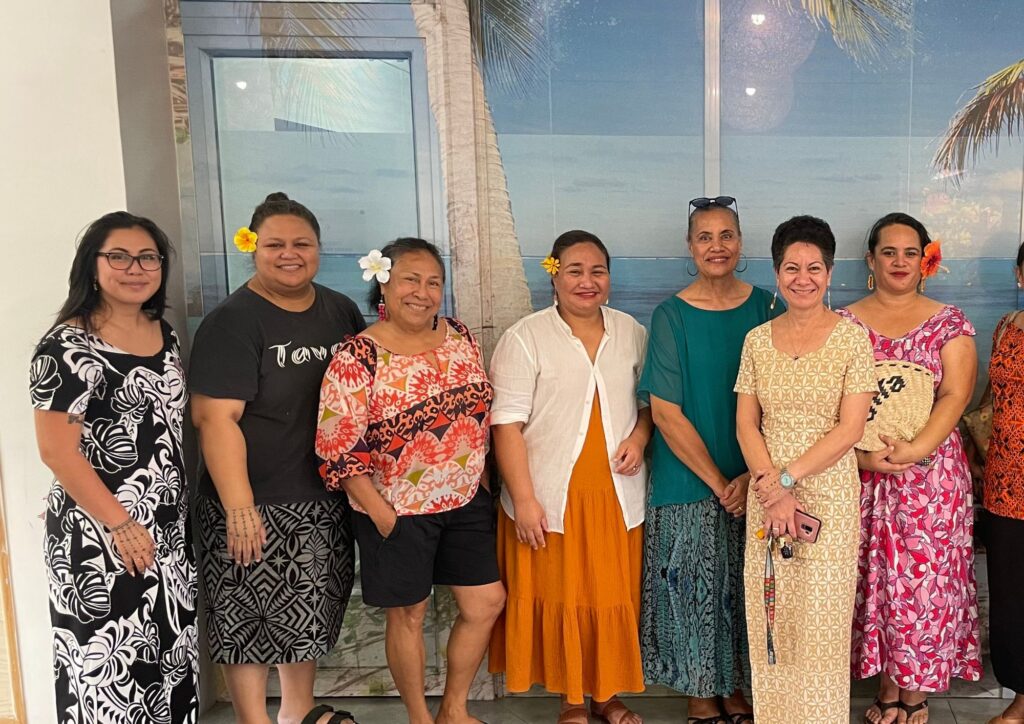
“That’s very admirable. You also recently came back from a break. Now that you’ve had the much-needed space to clear your head, are there any long-term plans or future plans you have for One Look Studio?”
“I’ve used the word privilege early on in this, interview, so I do think that sabbaticals and the ability to travel are a privilege. Not everyone can afford to take a month off like I did to prioritize my mental health to rest and recharge but I needed the time away from work to also process all the loss and grief I’ve experienced in the last two years. Loss always puts things into stark perspective.
“Starting in March 2023, I lost my Great Grandma Fa then in June 2023 my grandfather, Setoa and a few months later in September 2023 my husband’s grandmother, Mama Lakena. The year after, my husband lost his Grandfather, Pau, in February 2024 and while we were on Sabbatical, we received news that my Grandma Tutai had passed peacefully in her sleep in August 2024.”
“So, you know, 5 grandparents in the spans of 2 years is an insane amount of loss. At the time, we were in Australia, we had heard the news that grandma had passed and we had to make the difficult decision of whether we would go or stay.”
“I remember, my family calling to reassure us saying, “You’ve been here, you’ve been serving, and you’ve been doing the work as a tausi matua (caretaker). You’ve spent the most time with them [your grandparents] and should have no regrets.” In our culture, we say, “E fa’amanuia e le Atua le tausi matua” (God blesses those who look after their elders). As eldest children and grandchildren, I believe this was an opportunity and blessing.
“When I think about business, it’s very much the same. We talked earlier about the pandemic, grief and loss as well as being forced to slow down and put things in perspective. When I think about good business, I don’t only consider cashflow and the bottom line – there’s more to business than just profit and that’s why I lean more to the social enterprise model.
“Care is such a fundamental part of the work that I do in youth activism and advocacy with mental health and mental ill-health. Therefore, it would be hypocritical for me to be a different person in my advocacy space than I am in my business.
“I believe all of it is intersectional in that I don’t see a separation between the values I hold and work that I do in the advocacy space and in my business. In the future, I would like to see more of my activism and advocacy (which I colloquially refer to as my ‘milk and honey’) interwoven with my 9-5 ‘bread and butter’.
“As a multi-hyphenate and multi-passionate individual, I would like to see more connectedness in the different facets of my work. As a business owner, I would like to see Onelook Studio more well-known in the local market as a community that fosters innovation by bringing together people who are passionate about digital and creative transformation.”
“Those are, again, very admirable principles. With all you’ve said your businsess has done and what you’ve gone through in maintaining it, do you have any doubts or fears as to the future of your work?”
“I think it would be a lie to say I have no fears.” *chuckles*
“Every business owner has their own share of worries, anxieties, or fears as you say. I’m in a very abundant mindset at the moment, and a lot of the fears that I had prior was around scarcity. Not only in resourcing the business, but around my own energy and protecting what little energy I had because I was on survival mode. Anyone who has chronic pain or identifies as a person with disability knows in vivid detail how health and wellbeing greatly impacts the quality of work you can do.”
“Not only if you’re in in private sector like myself, but if you’re a public servant, an academic, or a leader… your health is the foundation upon which your castles are built. More specifically, if your health is like tectonic plates which shift and upset the natural order then you need to re-evaluate your priorities. You can always start another business but you cannot get another life. You only have the one you are given.”
“When I was younger, I would often put my health on the backburner to prioritise study, client work, business growth and travel opportunities but now, poor or failing health is a genuine concern for me. Not only my own health but the wellbeing of those around me. It’s not necessarily tied to my bottom line, but it is something that I am acutely aware of. It’s part of the reason why I emphasise C.A.R.E. in my business: Candour, Accessibility, Reciprocity and Equity.”
“When you espouse these kinds of ideals, it’s good to back it up with action.”
“I can also say this with confidence because I’ve been doing the work since 2018. It’s been seven years now and I still meet people who are surprised that I’ve been here [in Samoa] because my external appearance presents as afakasi [half caste] or saiga [Chinese]. They think, “Oh your business is successful and you’re able to travel for art and activism because you have access to overseas opportunities.” Nope. I’ve been here the whole time, sis. *chuckle*
“It reminds me of a client who said some really encouraging words to me and my sister at the end of a big project.”
“Our client looked at what we had built, the quality of the communication, and tailored solutions before remarking how surprised he was that young people could make a living like this *IN* Samoa. There is this misconception that to be successful and rich you must leave the island, but this is my home. How can I call myself a community builder and Samoan advocate if I do not first serve my people and my community?”
“Despite the prejudice, the colonial values, [and] the patriarchal attitudes that I often encounter in the entrepreneurial space, I have to find my own joy and hope to use as a north star, or else I will get discouraged by the weight of a system that’s set up to favour white, male, able-bodied, and cis-het entrepreneurs.”
“It’s so funny when I hear people criticise my priviledge. As if it is an insult.”
“In those instances, I think of my Grandma Tutai who would wake up early every morning for more than 15 years to make boiled eggs and flying saucers (corned beef and spaghetti toasties) for sailors and customers who frequented her Salelologa Shop. I remember my Great Grandma Fa who never wore shoes (even up until her 96th year) because she would rather spend her clothing allowance on her children and grandchildren’s school fees. I tear up thinking about my parents who did the gave up their whole paycheck every fortnight at the start of their careers to financial support their elderly parents and siblings.”
“My parents, grandparents, and great-grandparents did not labour in vain. Their work means something because they sacrificed what they did to ensure generations after them would be better off than they were.”
“It is an insult to their hard work and sacrifices to *not* have privilege because they worked so hard to make sure that their children would not have to go through what they did.”
“In my life, the term privilege is often used as a weapon to discredit the advocacy work that I do or take away from the achievements in my academic or professional journey. I often find this to be a dull blade because I acknowledge at every opportunity that I would not be here, if it wasn’t for the sacrifices of my parents, grandparents and great-grandparents.”
“When I started the first Pacific Island Hub, Wadia Ait Hamza – who was the leader of the Global Shapers Community – said to a room full of hopeful young leaders: ‘You should never be ashamed of your privilege. You should only be ashamed, if you do nothing with it.‘ The implication being that privilege is not only leverage for you but other people in your world. Use the privileges you have been granted to shape and change the world into a better place.
“Do you have any closing words of wisdom for aspiring folks who are about to enter the working world?”
“I would encourage anyone who is listening or reading to *take* your time because you *have* time.”
“In your twenties, you might feel like everything has to be a rushed. There’s scholarships, awards, certifications, promotions and travel opportunities… so many things you have to ‘grasp’ before it’s too late or fearing missing out on something #FOMO.”
“But, my encouragement to young entrepreneurs is using your twenties as an experimental, research and development stage of your life. This is the free trial period. Make mistakes, you know? Learn how to fail successfully, where there’s no such thing as mistakes but happy accidents (as Bob Ross used to say!)”
“I’m pushing my thirties and one of the things that is so important to me right now is ‘time’. If you’re in the entreprenurial space, don’t feel bad if you messed up. There’s still a lot of time for you to get there. Enjoy the people and experiences you’re having right now. Slow down and breathe because you have all the time in the world to do the work.”
“If you’re a social entrepreneur or an activist, you will soon realise that some of the work is not a sprint. A majority of the work is a marathon.”
“For example, in the activism work that I do around mental health and mental ill-health, most of my mentors have only seen the structural and behavioural change after 10+ years of being in the space. This is something that you have to fight for in the now – like the urgency of climate action, gender equality, etc – but also understand that you are standing on the shoulders of giants who came before you. In the same way you are sitting at tables and going through doors that your predecessors could not, you are also doing the work that you *can* in your lifetime to make greater strides and lasting change possible in the next generation.”
“If I could go back in time, I would just encourage the 18-20 year old version of me to not be discouraged and feel like they [Young Olisana] have not ‘done anything’ because you time is on your side. You honestly have *so* much time. The other thing I would encourage anyone who’s getting into business is to nurture relationships – friends, family ,and community are so important to sustainable business.”
“A lot of people talk about being a ‘big alpha dog’ or a ‘lone wolf’ when it comes to business… that a lot of the work at can be lonely because you are the only one looking ahead as a ‘Visionary’.
“One of our local business leaders, Tuiloma Sina Retzlaff, often likens leadership to a va’a (Samoan racing longboat), and that there are three roles involved when you in the boat: the leader directing the boat from the front, the pace setter drumming at the back, and the team who are rowing in the middle.”
“If you are rowing in a Samoan racing boat, you are not one that sees where the va’a is going. It is only the leader. And in in that sense, it can feel lonely because you are the one looking ahead to hold the boat steady whilst directing the crew to make the most of the wind and waves.”
“I would encourage people that feel lonely, especially solo-preneurs, (people who are running things by themselves and don’t have the privilege of hiring a team yet) to build community. You know, find friends that align with your vision and values because if we sat down for coffee and you told me the 5 closest people in your inner circle, I can tell you where you will be in 5 to 10 years.”
“Why? If you are trying to build a successful and thriving business, having people who don’t support you and who disrespect you in your inner circle will not get you very far because the opposition is coming from inside the house – your inner circle should be a safe place. These are not Yes-Men. I’m not asking you to cut off every single person that has something negative to say about your brand. Rather build a group of people you can trust to keep you accountable to your goals and values whilst also celebrating your progress – someone who will enjoy the ride just as much as arriving at the destination.”
“This will not be easy and I definitely upset some people early on in my career who thought we were ‘forever friends’ or ‘family’. I needed, to change a lot about who I was and who I surrounded myself with to get to where I am today.”
“Find your community. It is important that you remain connected with people so you have another reason to get up in the morning and face another day. When you get tired and forget your ‘why’, then your community will remind you who you are and why you started in the first place. Whatever line of business you get into, remember: At the end of the day, you are serving people.”
Old Dreams, New Paths
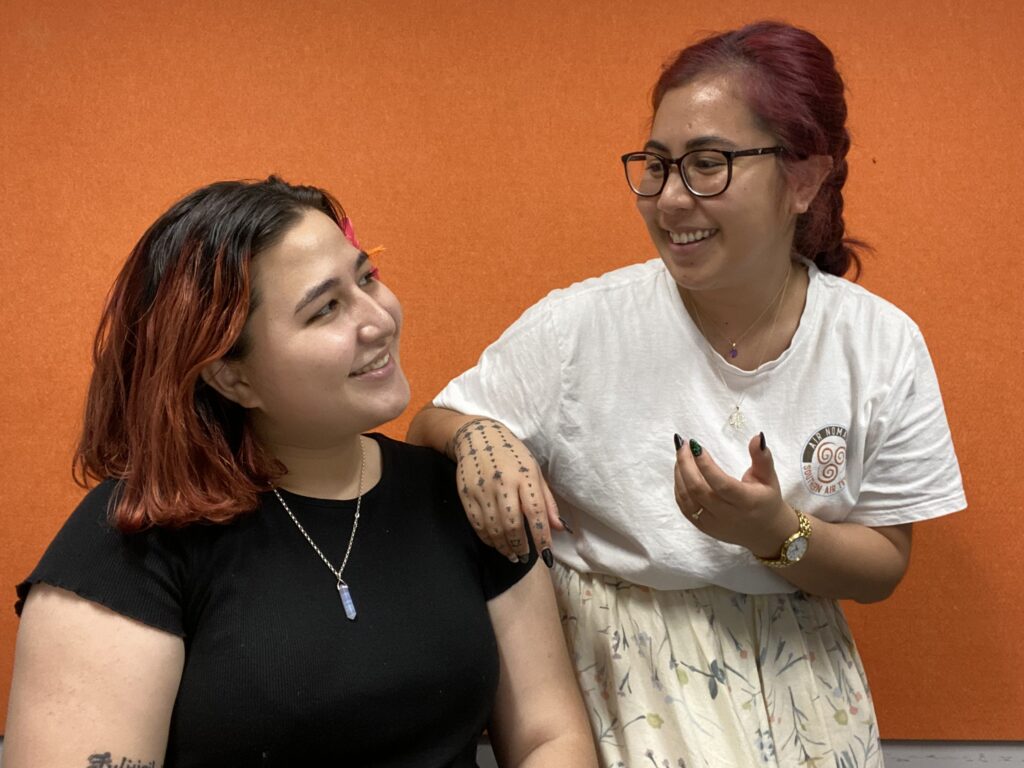
The past few years have seen a lot of big changes in both how businesses are run and what even a business is. From the rise of social media marketing, to instant global communication and the prevalence of remote working, being a business owner is a demanding prospect.
A lot of the time, you’re having to compete not only with a fluctuating market, but new demands, new expectations, economic ups and downs, unexpected innovations, global events, little unseen variables among other things. In Samoa, those problems increase even more as different cultural expectations and international barriers become apparent.
We’ve been using the term ‘business’ pretty liberally, but it can mean a lot of things. Whether it’s selling items online, in a marketplace, photography, calligraphy, IT services, retail, hardware, repair services or education. Whether it’s you working alone or with a team. Whether it’s a single worktable where you spend your time hunched over and perfecting your craft to an office space where you’re talking to eight different people while running twelve different tasks.
Businesses are not something you go into with half a heart. Even scammers have to make sacrifices (dignity for example).
It’s a commitment and something that will take up a lot of your time and effort. And like a lot of things, hard work doesn’t always guarantee success. And on an island nation that lacks many of the resources available to more successful countries, the deck is even more stacked against you. It’s an uphill battle as a result of factors you large didn’t and won’t have control over.
But failure and success aren’t the only guarantees. As Miss Olisana talks on extensively, running a successful business is an interweaving of principles, self-reflection and determination. It is also a privilege for some, especially in countries like Samoa where there are a lot of people struggling to make ends meet. Those struggles however can lay the foundation for a future generation to build something better. It’s often the case for future success that you might need to take the hit in the present. Sacrifice now, to make the future better.
And as stated previous, you should only be ashamed of privilege if you don’t do something with it.
